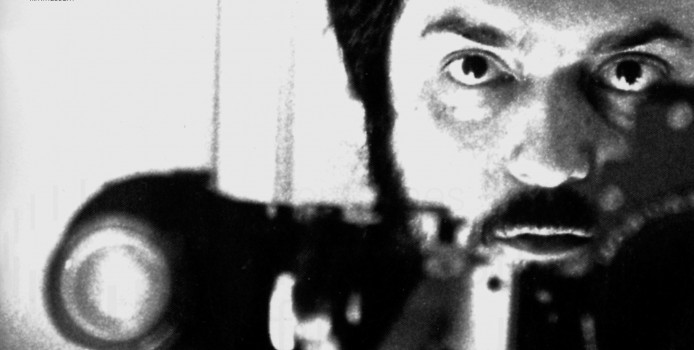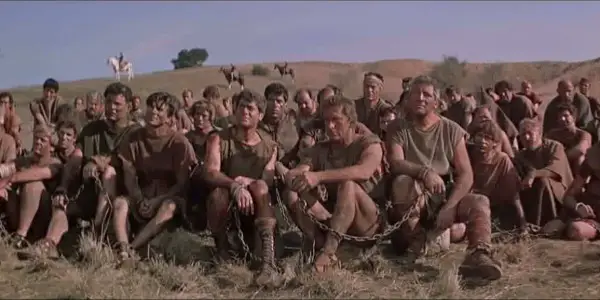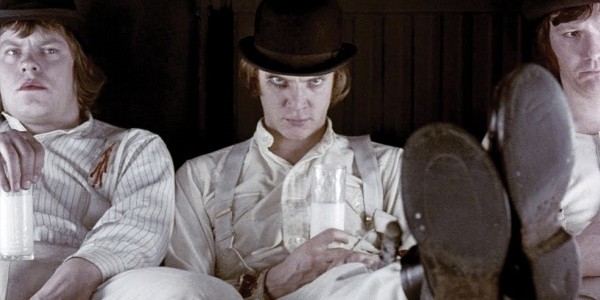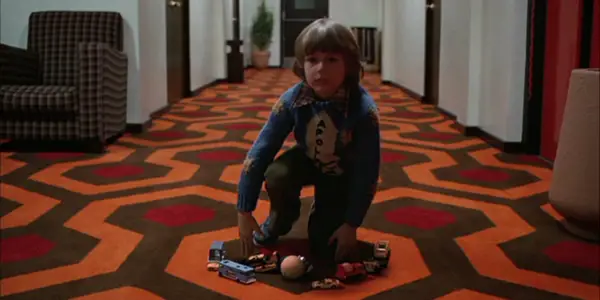The Beginner’s Guide: Stanley Kubrick, Director

Jax is a filmmaker and producer, and a film &…
There’s no arguing that if you have even a mild interest in film, you’ve likely heard of Stanley Kubrick. You’ve probably even seen at least one of his films, or, barring that, maybe some of the more famous clips (especially if you’re a film student). So my approach to this “Beginner’s Guide” is to recommend that you forget all that. Let’s think of Kubrick as someone you’ve never heard of. Where would you start with any other filmmaker? Why, the beginning, obviously.
Immediately, I’m going to contradict myself, but I feel that’s in keeping with the man under discussion. I’m going to skip the first three films and here’s why: Fear and Desire (1953) is nearly impossible to find. It’s considered a “lost” film because Kubrick went out of his way to destroy as many copies as he could (fun Kubrick-obsessive fact: there is a semi-decent print circulating and it screens around from time to time if you’re interested). His sophomore effort, Killer’s Kiss (1953) entertains and shows us lots of growth as a filmmaker, as does The Killing (1956), but they are more for the “Intermediate Guide” than a “Beginner’s.” The meat of Kubrick’s work starts with…
Paths of Glory (1957)

Paths of Glory is Kubrick’s first (not counting Fear and Desire) proper war film and the first of his anti-war films. Kick Douglas appears in his first collaboration with the director as the commander of three soldiers tried and convicted of cowardice. The film takes an up close and personal look at the front lines of World War I and is notable for its use of tracking shots and close ups.
I personally find this to be the most emotionally stirring of Kubrick‘s films (grab some tissues before the last scene because waterworks are coming), and this always makes me wonder about his development as a filmmaker and a person from this point forward. What was it about this time in his life that caused him to study humanity more objectively from this point on?
Honourable Mention: Spartacus (1960)

Spartacus needs be mentioned because of the role it played in shaping the rest of Kubrick’s career. Kirk Douglas stars again and some great performances from cinema greats give Kubrick a birth-by-fire with big Hollywood personalities such as Laurence Olivier and Peter Ustinov.
His first and last “Hollywood” film, Kubrick disliked the process of making Spartacus so much that he left the country. However, what Kubrick seems to have taken from the experience is a grander sense of production value and understanding of just what could be accomplished with the right will (and money). He would put this knowledge to good use in all of his future endeavors, while maintaining control of his work, and become one of the only independent widely distributed directors of his time.
Dr. Strangelove (1964)

Ok, I know I’m skipping Lolita (1962), which is a great film. Deal with it, I guess. Or tear me to shreds in the comments, it’s not really my decision. Anyway, Dr. Strangelove Or: How I Learned to Stop Worrying and Love the Bomb came out in 1964, one month after the assassination of JFK at the height of the Cold War.
Originally meant to be a serious adaptation of the novel Red Alert, Kubrick and co-writer Terry Southern eventually developed it into a sophisticated comedy which managed to criticise while also poking some fun at the fear that many people had during the Cold War. The result is one of the greatest satires of our time.
2001: A Space Odyssey (1968)

Obviously, this film makes an appearance here. Arguably Kubrick’s magnum opus, 2001: A Space Odyssey stands several tests of time – from a storytelling point of view, a visual effects standpoint, or just looking at it philosophically, where it provides endless debate.
There are still a few shots that nobody has been able to explain to my satisfaction (I’ve decided it was filmed on location), and discussing the last few scenes alone is one of my favourite film debates. If you’re looking to familiarise yourself with Kubrick and want to sound like you know what you are talking about, this film should be at the top of your viewing list.
A Clockwork Orange (1971)

A Clockwork Orange, along with the next few, is more accessed by your average Joe, and yet many people don’t even associate Kubrick with it. Still, it’s important as an introductory film to Kubrick‘s world, because his trademarks are everywhere, from shot choices to music to familiar faces in the cast.
All of Kubrick‘s films deal with addressing the darker sides of human nature, but none more so blatantly than A Clockwork Orange. Anthony Burgess wrote a violent book, yes, but Kubrick‘s filming choices emphasize and exaggerate the “ultra-violence.” The film eventually outshone the book (I confess, I haven’t read it myself). In terms of impact, it does tend to be the go-to film people like to mention as ‘pushing the boundary of acceptable cinema,’ but I find that to be more of a comment on our society than the film itself.
The Shining (1980)

I think The Shining may be Kubrick‘s most famous film and much of that is because it’s a Stephen King horror adaptation. It often functions as the gateway film (along with A Clockwork Orange) for future Kubrick aficionados because of its widespread and mainstream acceptance. Kubrick maintains his technical prowess and storytelling abilities with this film, while managing to create a more viewer-friendly experience (meaning your average theatre goer).
This film also has a shot or two that blow my mind technologically, and I constantly debate about how he accomplished them. He also pulls a killer performance out of Shelley Duvall and first timer Danny Lloyd, and the most frightening performance I’ve ever seen from Jack Nicholson. A definite must-see in the world of Stanley Kubrick.
This is not intended to be a ranking of Kubrick‘s best or ‘most valued’ works, but instead ones that I feel would most easily begin a viewer on a journey into the further depths of his vision. From here, I feel you have a solid launching pad to delve into films like Full Metal Jacket (1987), Eyes Wide Shut (1999), and Barry Lyndon (1975). Then I would check out the early works like Killer’s Kiss (1955) and The Killing (1956).
Kubrick worked with a lot of varied subject matter, pretty much every genre, and pushed many envelopes. As such a director, it’s difficult to capture his essence in a single body of work or a small collection. I highly recommend venturing further and deeper into the life work of the man before trying to achieve any kind of fuller understanding. He’s my favourite director, I’ve seen all of his films countless times, and still he holds a great deal of mystery and allure to me. It is that fascination that I hope I’ve shared with you.
So what do you think of Stanley Kubrick? What are some of your favorite movies by him?
(top image source: stanleykubrick.de)
Does content like this matter to you?
Become a Member and support film journalism. Unlock access to all of Film Inquiry`s great articles. Join a community of like-minded readers who are passionate about cinema - get access to our private members Network, give back to independent filmmakers, and more.
Jax is a filmmaker and producer, and a film & tv production lecturer at the University of Bradford and is also completing a PhD about Stan Brakhage at the University of East Anglia. In the remaining "spare time", Jax organises the Drunken Film Fest, binges bad TV, and dreams of getting “Bake Off good” with their baking.













